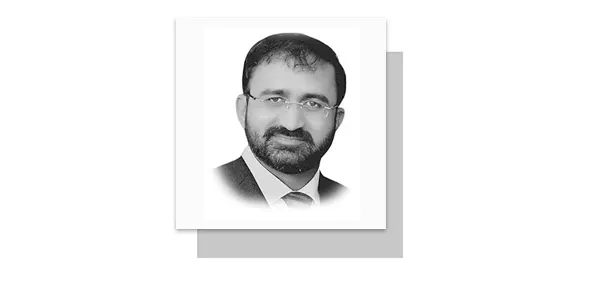PAKISTAN, a nation that identifies itself as an Islamic republic, encompasses a society characterized by its diversity and encounters many social challenges. Throughout the course of time, a multitude of radical phenomena have surfaced, encompassing elements such as religious extremism¡ intolerance, sectarianism, gender disparity and acts of violence, all of which diverge from the fundamental tenets of the Islamic faith. The primary objective of this study is to examine the efficacy of Islamic teachings for dealing with and ameliorating the prevailing radical tendencies within Pakistani society. Pakistani society is currently grappling with a growing prevalence of radical ideologies that pose a threat to social cohesion and hinder societal advancement.
It is imperative to comprehend the fundamental factors underlying these patterns and examine influence of Islamic teachings in their elimination to cultivate an equitable society founded upon fairness, acceptance and integration principles. The phenomenon of religious extremism in Pakistan is a multifaceted matter with intricate historical origins, exerting substantial influence on the cohesion of society. The ascent of religious extremism can be attributed to multiple factors. The origins of religious extremism in Pakistan can be attributed to the 1947 partition of sub-continent which resulted in establishment of Pakistan as an independent nation with a Muslim majority. The conceptualization of Pakistan was founded upon principle of safeguarding rights and welfare of Muslims residing in region.
Nevertheless, the nation encountered difficulties in delineating its identity, leading to a conflict between non-religious and religious factions. Over the course of history, religious groups have gradually acquired influence, leading to the emergence of religious parties as influential participants in the political arena. The religious extremism witnessed during the 1980s was exacerbated by the Soviet-Afghan War, wherein Pakistan assumed a pivotal role in providing assistance to the Afghan opposition against Soviet military forces. During this historical era, militant organizations had notably emerged that redirected their focus toward matters within their own country. After 9/11 Pakistan had played a front-line State role in the War against Terrorism but the consequences of the War on Terror were very dreadful for Pakistan which resulted in the sacrifice of more than eighty thousand lives of innocent citizens including law enforcement, police, army and others.
One of the key factors contributing to the emergence and proliferation of religious extremism is the influence of socio-economic conditions. Specifically, poverty, limited access to education and high unemployment rate have collectively created an environment conducive to the recruitment and radicalization of individuals by extremist groups. Marginalized individuals frequently seek comfort through engagement with extremist ideologies. The growth of religious theological schools (madrasas) in Pakistan has contributed to the propagation of religious extremism. While it is true that numerous madrasas offer educational and social support, certain institutions have been associated with the process of radicalizing students, advocating for a limited understanding of Islam and cultivating an atmosphere that facilitates the development of extremist ideologies. The engagement of Pakistan in territorial disputes, such as the war between the Soviet Union and Afghanistan and the Kashmir dispute, has resulted in the utilization of terrorist organizations as proxies. These groups were initially provided support with the intention of advancing strategic objectives; however, overtime, they shifted their allegiance and started promoting an extremist agenda that was in opposition to the state.
Pakistan has experienced instances of sectarian violence involving various sects of Islam, notably the Sunni and Shia communities. Extremist factions have strategically utilized the aforementioned tensions to incite animosity and aggression, resulting in heightened societal fragmentation. In accordance with Islamic doctrines, the elimination of religious extremism necessitates a holistic strategy grounded in the fundamental tenets of the religion. Islam significantly emphasizes the significance of knowledge, comprehension, and moderation. Islamic teachings advocate for the principle of acknowledging and appreciating diversity, as articulated in the Quranic verse, “O mankind, indeed We have created you from male and female and made you peoples and tribes that you may know one another” (Quran Surah Al- Hujarat:13). This verse elucidates the fundamental importance of unity and collaboration among individuals hailing from diverse backgrounds.
Islam promotes and emphasizes the pursuit of knowledge and comprehension, as articulated by Hazrat Muhammad PBUH who declared that the acquisition of knowledge is a mandatory duty for every Muslim. The prioritization of education serves as a means to combat ignorance and foster the development of critical thinking skills, which play a crucial role in effectively addressing and questioning extremist ideologies. Furthermore, Islam places significant emphasis on the principles of moderation, equilibrium, and prevention of extremist tendencies across various domains of human existence. “Oh People of the Book, don’t go extreme in your religion.” (Quran, Surah An-Nisa’: 171). Hazrat Muhammad PBUH espoused the belief that adopting a moderate approach is the most favorable course of action. Islam offers a comprehensive framework for addressing religious extremism and cultivating a harmonious society founded upon principles of harmony, compassion, and coexistence through the promotion of education, comprehension, and moderation.
The analysis highlights the significance of Islamic principles, such as moderation, justice, tolerance, and inclusivity, in effectively addressing various societal challenges. The findings of this study indicate that the promotion of Islamic teachings within Pakistani society has the potential to foster social harmony, equality, and justice. The promotion of these teachings can be significantly influenced by educators, policymakers, and religious leaders. It is advisable to conduct additional research in order to investigate the efficacy of particular educational programs, policies, and initiatives in advancing Islamic teachings and mitigating extremist tendencies within Pakistani society.
— The Writer is PhD in Islamic Studies from NUML Islamabad and Author of Five Books & Thirty Five Research Publications.
Email: [email protected]









